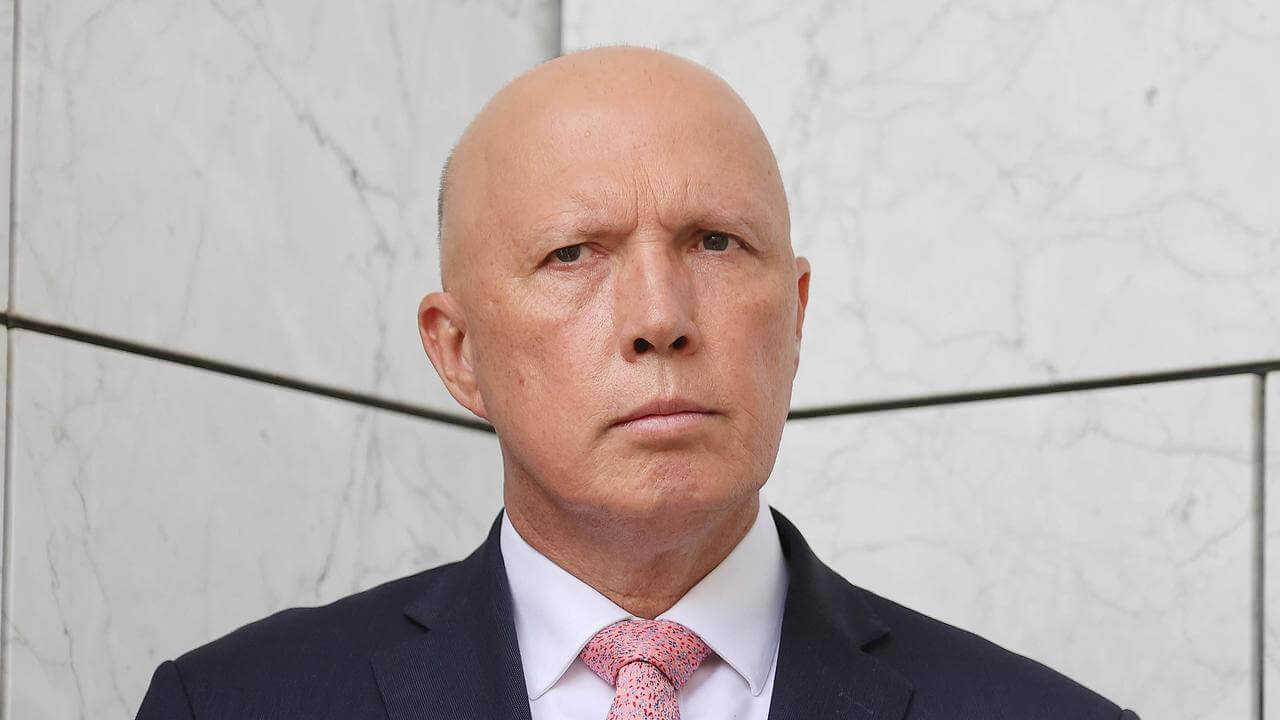On Tuesday, Australian Minister for Defence Peter Dutton suggested that the country could fast-track the acquisition of nuclear submarines through its AUKUS deal with the United Kingdom (UK) and the United States (US) amid a deteriorating regional security situation, possibly referring to the Solomon Islands signing a wide-ranging security pact with China last week. In fact, his remarks came as he announced a significant weapons upgrade worth $2.64 billion for the Australian Defence Force (ADF).
According to Dutton, the first boat could be in the waters by the 2030s, remarking that the accelerated schedule is designed to counter China’s growing clout in the Indo-Pacific. “They [the UK and the US] understand the threat that is the reality here within the Indo Pacific, they want to reach into the Indo Pacific to deter any act of aggression. I believe that we can acquire [submarines] much sooner than what’s being predicted at the moment,” Dutton said.
The AUKUS deal, which was announced in September 2021, allows Australia to build at least eight nuclear-powered submarines, the technology for which will be shared by the UK and the US for the first time.
“The last thing we want is conflict of any nature in our region. We want peace to prevail.”
— 9News Australia (@9NewsAUS) April 4, 2022
Defence Minister Peter Dutton has announced a $3.5 billion investment in the fast track of missiles as he warns of the potential conflict in our region. #9News pic.twitter.com/iubMbaWbvn
“Everything we’re doing is designed to try and deter any act of aggression... we want peace to prevail,” Dutton noted, adding, “We have an autocrat in Russia and an autocrat in China... The Chinese government is on a course in relation to Taiwan and amassing nuclear weapons.”
This appears to echo comments Dutton made in April last year, when he said that the possibility of the China-Taiwan conflict “should not be discounted” due to the “militarisation of bases across the region” and the heavy “animosity” between the two countries. Likewise, Home Affairs Secretary Michael Pezzullo had warned that the “drums of war” are beating louder.
In his speech on Tuesday, alongside expressing concern over the Russian invasion of Ukraine, Dutton also raised alarm about China assembling a “high number” of warships in the Indo-Pacific, which he said has pushed Australian defence planners to reassess the risk of imminent conflict. “There is potential of conflict in our area in a couple of years,” he added.
Prior to the federal election next month, the Australian government has said it will fast-track the purchase of advanced weapons. In this regard, Dutton said that as part of the $2.64 billion military upgrade, Australian naval vessels and warplanes will be fitted with advanced long-range missiles capable of hitting targets for up to 900 kilometres by 2024, three years ahead of schedule.
Don't listen to what Labor says before an election, look at what they do when they're in government. Don't risk our national security with Labor. pic.twitter.com/0xHVYAJi36
— Peter Dutton (@PeterDutton_MP) April 4, 2022
“These world-class strike weapon systems will equip our forces to better protect Australia’s maritime approaches and when necessary, contribute to coalition operations in our region,” he said.
The government also aims to establish an Australian missile manufacturing sector, with US-based defence companies Raytheon and Lockheed Martin Australia as strategic partners. The Australian Missile Corporation, the Sovereign Missile Alliance and Aurecon Advisory would serve as local partners in adiding the American companies in developing the country’s sovereign missile industry.
Keeping Australia safe is our highest priority. Today we announced our fighter jets and naval fleet will be armed sooner with new long-range strike missiles to hold enemies at bay at ranges up to 900km.https://t.co/1SVk0Pftzo
— Peter Dutton (@PeterDutton_MP) April 5, 2022
Taking all of this into consideration, Dutton warned China against bullying and increased militarisation across the South China Sea. In this regard, Dutton noted the “militarisation of 20 points of military presence on the South China Sea,” “economic coercion,” and “attempts to build military bases in PNG [Papua New Guinea], the Solomon Islands, and elsewhere in the region.” He called these development “worrying signs” and urged the world to be more realistic.
Commenting on Dutton’s military upgrade, Minister for Foreign Affairs Marise Payne told Sunrise: “We’re spending more money in defence than we ever have, and we have to. Because, as you point out, the Indo-Pacific has changed and we need to be realistic about the fact that China is arming herself with more nuclear weapons.”

